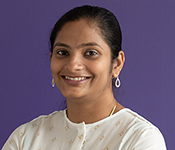 Allen School alumna Rajalakshmi Nandakumar (Ph.D., ‘20), now a faculty member at Cornell University, received the SIGMOBILE Doctoral Dissertation Award from the Association for Computing Machinery’s Special Interest Group on Mobility of Systems Users, Data, and Computing “for creating an easily-deployed technique for low-cost millimeter-accuracy sensing on commodity hardware, and its bold and high-impact applications to important societal problems.” Nandakumar completed her dissertation, “Computational Wireless Sensing at Scale,” working with Allen School professor Shyam Gollakota in the University… Read more →
Allen School alumna Rajalakshmi Nandakumar (Ph.D., ‘20), now a faculty member at Cornell University, received the SIGMOBILE Doctoral Dissertation Award from the Association for Computing Machinery’s Special Interest Group on Mobility of Systems Users, Data, and Computing “for creating an easily-deployed technique for low-cost millimeter-accuracy sensing on commodity hardware, and its bold and high-impact applications to important societal problems.” Nandakumar completed her dissertation, “Computational Wireless Sensing at Scale,” working with Allen School professor Shyam Gollakota in the University… Read more →

Rajalakshmi Nandakumar wins SIGMOBILE Doctoral Dissertation Award for advancing wireless sensing technologies that address societal challenges
 Allen School alumna Rajalakshmi Nandakumar (Ph.D., ‘20), now a faculty member at Cornell University, received the SIGMOBILE Doctoral Dissertation Award from the Association for Computing Machinery’s Special Interest Group on Mobility of Systems Users, Data, and Computing “for creating an easily-deployed technique for low-cost millimeter-accuracy sensing on commodity hardware, and its bold and high-impact applications to important societal problems.” Nandakumar completed her dissertation, “Computational Wireless Sensing at Scale,” working with Allen School professor Shyam Gollakota in the University… Read more →
Allen School alumna Rajalakshmi Nandakumar (Ph.D., ‘20), now a faculty member at Cornell University, received the SIGMOBILE Doctoral Dissertation Award from the Association for Computing Machinery’s Special Interest Group on Mobility of Systems Users, Data, and Computing “for creating an easily-deployed technique for low-cost millimeter-accuracy sensing on commodity hardware, and its bold and high-impact applications to important societal problems.” Nandakumar completed her dissertation, “Computational Wireless Sensing at Scale,” working with Allen School professor Shyam Gollakota in the University… Read more →
Gray sheep, golden cows, and everything in between: Yejin Choi earns Longuet-Higgins Prize in computer vision for enabling more precise image captions via natural language generation
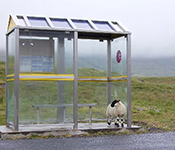
Ph.D. alumnus Adrian Sampson receives Young Computer Architect Award for his impact in approximate computing and programming languages in hardware
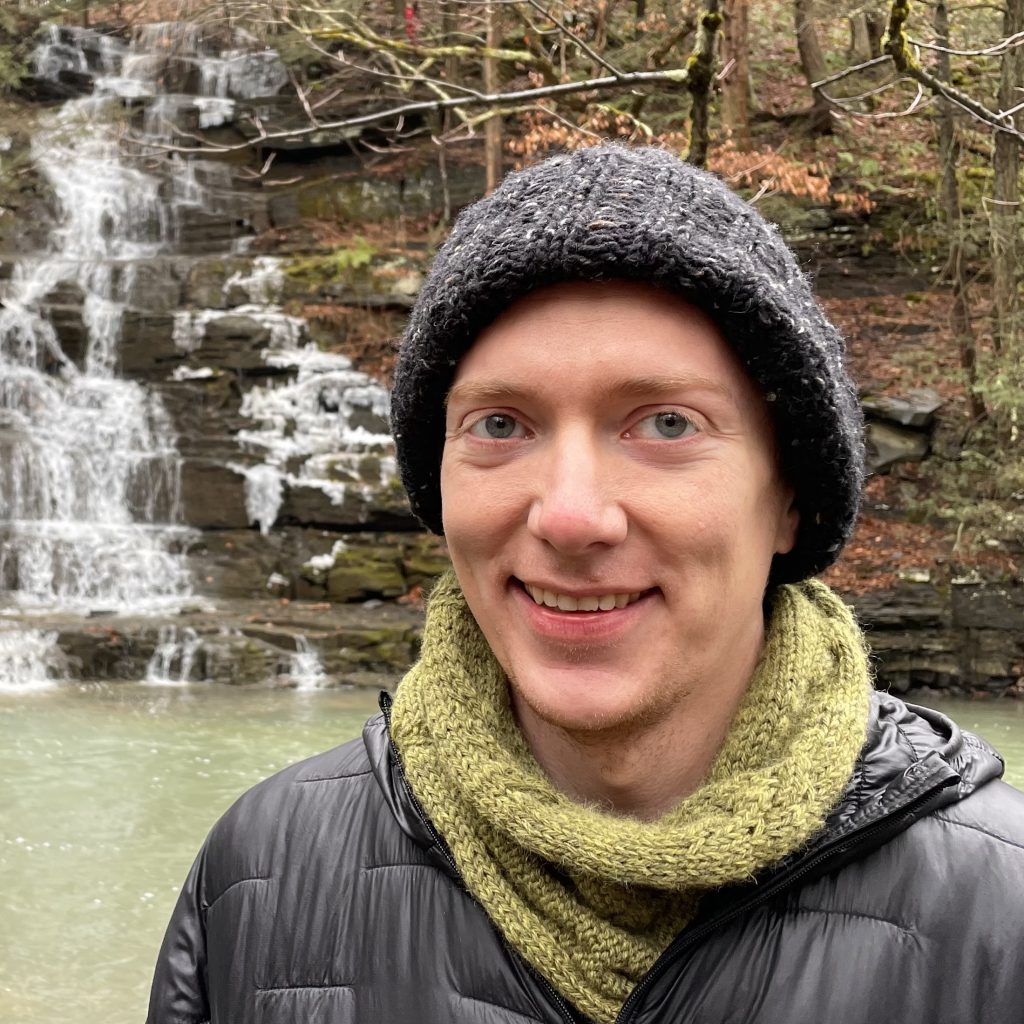 Allen School alumnus Adrian Sampson (Ph.D., ‘15) has been recognized by the IEEE Computer Society’s Technical Committee on Computer Architecture with the 2021 Young Computer Architect Award for “contributions to approximate computing and hardware synthesis from high-level representations.” This award honors an outstanding researcher who has completed their doctoral degree within the past six years and who has made innovative contributions to the field of computer architecture. Sampson, who completed his Ph.D. working with Allen School professor Luis Ceze and… Read more →
Allen School alumnus Adrian Sampson (Ph.D., ‘15) has been recognized by the IEEE Computer Society’s Technical Committee on Computer Architecture with the 2021 Young Computer Architect Award for “contributions to approximate computing and hardware synthesis from high-level representations.” This award honors an outstanding researcher who has completed their doctoral degree within the past six years and who has made innovative contributions to the field of computer architecture. Sampson, who completed his Ph.D. working with Allen School professor Luis Ceze and… Read more →
Hand it over! Allen School and NVIDIA researchers earn Best Paper Award at ICRA for enabling smooth human-to-robot handoff of arbitrary objects
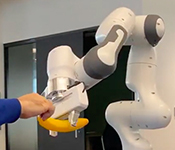 Allen School professors Maya Cakmak and Dieter Fox, along with their collaborators at NVIDIA’s AI Robotics Research Lab, earned the award for Best Paper in Human-Robot Interaction at the IEEE International Conference on Robotics and Automation (ICRA 2021) for introducing a new vision-based system for the smooth transfer of objects between human and robot. In “Reactive Human-to-Robot Handovers of Arbitrary Objects,” the team employs visual object and hand detection, automatic grasp selection, closed-loop motion planning, and… Read more →
Allen School professors Maya Cakmak and Dieter Fox, along with their collaborators at NVIDIA’s AI Robotics Research Lab, earned the award for Best Paper in Human-Robot Interaction at the IEEE International Conference on Robotics and Automation (ICRA 2021) for introducing a new vision-based system for the smooth transfer of objects between human and robot. In “Reactive Human-to-Robot Handovers of Arbitrary Objects,” the team employs visual object and hand detection, automatic grasp selection, closed-loop motion planning, and… Read more →
Allen School professor Emina Torlak receives Robin Milner Young Researcher Award for her groundbreaking work in automating reasoning for programmers
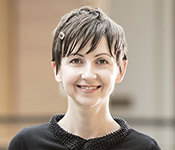 Allen School professor Emina Torlak, co-founder of the UNSAT group and a member of the Programming Languages & Software Engineering (PLSE) group, earned the 2021 Robin Milner Young Researcher Award from the Association for Computing Machinery’s Special Interest Group on Programming Languages (ACM SIGPLAN) for her research contributions in automated reasoning to make computer programming easier. The award was named in honor of Milner, the legendary British computer scientist who was a leader in programming language research and had… Read more →
Allen School professor Emina Torlak, co-founder of the UNSAT group and a member of the Programming Languages & Software Engineering (PLSE) group, earned the 2021 Robin Milner Young Researcher Award from the Association for Computing Machinery’s Special Interest Group on Programming Languages (ACM SIGPLAN) for her research contributions in automated reasoning to make computer programming easier. The award was named in honor of Milner, the legendary British computer scientist who was a leader in programming language research and had… Read more →
Twice as nice: Allen School researchers earn dual Best Paper Awards at STOC
Members of the Allen School’s Theory of Computation group earned two Best Paper Awards at the 53rd annual Symposium on Theory of Computing (STOC 2021) last week for achieving a pair of “firsts” that advanced the state of the art in approximation algorithms and cryptography, respectively. One of the winning papers, co-authored by Allen School Ph.D. student Nathan Klein and professors Anna Karlin and Shayan Oveis Gharan, produced the first improvement on the Traveling Salesperson Problem in more than… Read more →
Q&A with Tadayoshi Kohno: In his new novella ‘Our Reality,’ Allen School professor invites readers to consider who benefits (and who doesn’t) from technology
What if you could engage with the world — go to class, do your job, meet up with friends, get a workout in — without leaving the comfort of your bedroom thanks to mixed-reality technology?
What if you could customize your avatar in many ways, but you couldn’t make it reflect your true racial or cultural identity? What if the best way to get a high-paying job was based on your access to this technology, only you are blind and… Read more →
Allen School professor and “SIGACT oracle” Paul Beame recognized with ACM SIGACT Distinguished Service Award
Paul Beame, an associate director of the Allen School and a professor in the Theory of Computation group, has been honored with the 2021 ACM SIGACT Distinguished Service Award for his more than 20 years of dedicated and effective support to the theoretical computer science community. Each year, the Association for Computing Machinery’s Special Interest Group on Algorithms and Computation Theory presents the award to an individual or group who has gone above and beyond in service to… Read more →
Allen School’s Yasaman Sefidgar earns Facebook Fellowship for her work in building supportive social systems
Yasaman Sefidgar, a Ph.D. student working with Allen School professor James Fogarty, has been named a 2021 Facebook Fellow for her research developing computational and data-driven systems that inform and support social and health interventions. Sefidgar’s work currently is focused on studying the powerful effects of social support and how to make it more accessible with online platforms, especially during difficult times.
Sefidgar aims to use her Fellowship to understand the emotional needs of people online — specifically… Read more →
